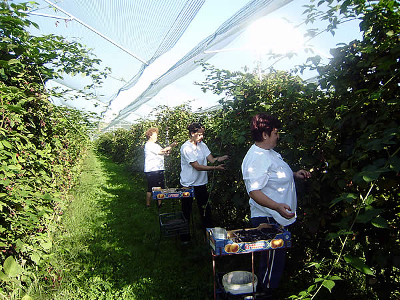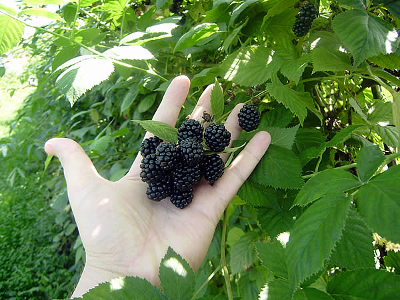
Kupilek
Kupilek

Jambrešić family
We are a big, hardworking, harmonious family in a business of an ECO-manufacturing of a healthy blackberry wine. In the late 1991 we have planted our first blackberry plant and in 1993 we have produced a first test barrel of a blackberry wine. We use a top wine producing technology based on the work of PhD Schubert Gerhard, enologist and professor at the Agronomy University in Zagreb, to whom we are very grateful on all of his professional advices and his supervision of the production technology of this magical drop of ruby we are so very proud of. The whole Jambresic family participates in the production process. Mum Dragica looks after planting, maintenance, flowering and harvesting of blackberry plants. Her eager eye monitors every leaf, and every plant to get an even greater quality of fruits. With his extensive experience dad Ivan creates the production process of choosing the tastiest and the healthiest ECO blackberries for KUPILEK wine; a process that needs hard work, persistence and positive attitude.
ECOlogical cultivation
To preserve the nature and protect people’s health, by securing the safe and healthy work environment, we cultivate the whole of OPG Jambresic Estate in accordance to the special ECO maintenance system. We respect and maintain a natural cycles of production using the renewable resources and preserving the landscape. Differences between ECO-production and conventional production Eco-production requires more knowledge than the conventional production because it has no means for mass production. It is not based on simple recipes and on symptom – cure relationship but on the knowledge of an agroecosystem mechanism. The principal for the agroecosystem is the soil. Through the soil we can maintain the agriculture and the environment and control introduction of nutrients in a food chain. Ecological production enhances the content of organic matter and biological activity of the soil and the plants nutrition is based on the biological derived nutrients.


Advantages of ECOlogical production
In a conventional agriculture it is evident that there is and excessive and irrational use of nonrenewable eco sources. Those measures that leave the permanent damaging consequences on the whole nature and its processes, disturb a million years established balance in the nature. Modern science has defined that the large number of illnesses has causes related with a quality of food we eat. It is a fact that the quality of food is reduced by the introduction of different residues from chemical materials that stay in plants we eat. We are again starting to perceive that the importance of cooperation with nature instead of its systematic destruction gives much better results.
Ecological agriculture fits in a concept of sustainable development because, through the number of measures covering the overall management, it strives to keep ecologically clean, economically worthy, ethically and socially just production. Today’s agriculture has transformed fields to fit a certain production way of fully exploiting the soil. Many plant and animal sorts have become extinguished and there is a drastic decline in a number of small farmsteads. Thanks to that approach, the conventional agriculture is the biggest polluter today
Blackberry is healthy
Although many like to eat sweet blackberries not many do know how very healthy this whole plant is; its leafs, flowers, root and fruit. Spokespeople for a natural, healthy way of living recommend eating free grown blackberries because of their calming ability and their help in a food digestion. Blackberry leaves are used in a preparation of tee used as poultice for face and eye puffiness. Very rich in an organic iron, the blackberry became irreplaceable in nutrition of children, pregnant women, nursing mothers, and older people.
The blackberry fruit contains essential oil, tannin and pectin, apple, oxal and lactic acid, sour substance and a big amount of vitamin C (100g of blackberries contain 21g of vitamin C). It is very rich in fibers containing iron and calcium.


A fresh blackberry contains:
- Water 87,5 Extract 6,8 %
- Cellulose 1,5 %
- Sugar as invert cca. 5,7 %
- Acid as apple 1,3 %
- pectin 1,5 %
- ash 0,5 %
In terms of technology cca. 5% of pips-seeds can be found in blackberry.




